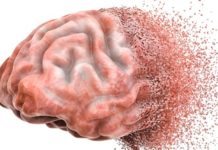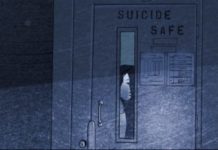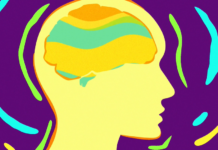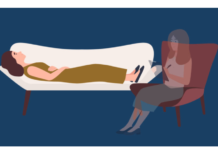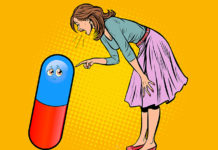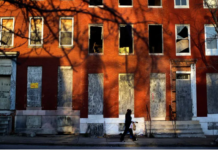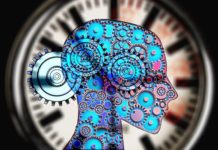Yearly Archives: 2019
Anticholinergic Psychiatric Drugs Linked to a 50% Increase in Dementia
People who take anticholinergic drugs, such as antidepressants and antipsychotics, are at a 50% higher risk of dementia.
Thousands of Immigrants Suffer In US Solitary Confinement
From the The International Consortium of Investigative Journalists: Locked for weeks or months in isolation cells, mentally ill and other vulnerable detainees from around the world are plagued by anxiety, anger, depression and suicidal impulses.
UN Report Criticizes Biomedical Approach to Mental Health
UN official writes that States should focus instead on resolving social inequality and injustice as determinants of health and human rights.
It Is Time to End Coercion in Mental Health
From Council of Europe, Commissioner for Human Rights: "My experience as your Human Rights Commissioner has . . . confirmed . . . the vicious circles caused by a coercion-based mental health approach."
Against the Odds: ‘Unimproved Schizophrenic’ to Yale PhD
Forty years after I had first been admitted to the hospital, I was ready to confront my past. So, I sent for my hospital records, and I read them. As an experienced clinician, I recognized immediately what the doctors hadn’t been able to see in 1960: my problem wasn’t ‘schizophrenia’ but PTSD, connected with incest.
Is Sexual Desire a Medical Issue? New Drug Revives Debate
From STAT: Sexuality can be understood through the 'dancing model.' Dancing, like sex, requires having a body, but no one would study the art of ballet by cracking open Gray’s Anatomy.
‘Ghost Networks’ of Psychiatrists Hinder Patients’ Access to Care
From STAT: Every insurance company should be required to keep its provider lists updated so they can’t collect premiums for services they don’t actually provide.
Doctors Beg Court for Action on NJ State Psychiatric Hospital
From NJ.com: Violence, mismanagement and despair have become 'normalized' at Greystone Park Psychiatric Hospital in Parsippany, according to a federal lawsuit.
A Guide to Long-Acting Neuroleptics: Education or Promotion?
The National Council for Behavioral Health has released a new pamphlet titled “Guide to Long-Acting Medications for Providers and Organizations.” By downplaying some aspects of the available science, the pamphlet implicitly acts as a promotional tool for the pharmaceutical industry.
Report Addresses Barriers to Voting for Those Diagnosed with Mental Disorders
People diagnosed with mental disorders face systemic barriers to exercising their right to vote.
Relationships Are Human Rights Determinants in Mental Health
From Health and Human Rights Journal: Access to a psycho-social and social environment that fosters respectful relationships is a human right, as outlined by the latest report from UN Special Rapporteur Dainius Pūras.
Our Mental Health System May Be Unfixable. But There’s an Alternative
From Salon: Our healing journeys are not just about individuals. They are about transforming society and shifting the culture.
Researchers Call for Integration of Social Risk Factors in Mental Health Care
An understanding of the importance of social risk factors in mental health outcomes has professionals calling for better models and integrated treatments.
The Emotional Impact of Critical Consciousness on Youth
Middle school students with critical consciousness of US politics and inequality exhibit more emotional distress and lower academic achievement.
The Pill Shaming Phenomenon: What’s It Really About?
At best, the underpinnings of the ‘pill shaming’ accusation are misguided. At worst, they represent a concerted effort on the part of the current power structure to use us against ourselves (and they don’t need any more help). It’s the same old story packaged up as if it were something new and ultra woke.
The Voices My Daughter Hears
The voices were extraordinary; in a way, they were like ghosts. I could not see them, but only divine them by the turmoil they stirred up in Annie. They were not polite house ghosts who knew when to leave; they were ne’er-do-wells she could not get rid of. They were tormentors and torturers, testing the limits of her sanity, blackmailing her into submission.
Study Links MDMA Use and Self-Reported Empathy
Users of the substance ‘MDMA’ are reported to have higher emotional empathy than users of other drugs.
Suicide Is Becoming America’s Latest Epidemic
From The Nation: In contrast to the United States, suicide rates are noticeably lower and have been declining in Western European countries where social safety nets are more extensive.
What It Means to Have a Trauma of Identity
From Goop: "When people get the opportunity to express themselves and show exactly who they are, including their traumatized past—and be met with love and compassion—that in itself has a great effect."
Involuntary Hospitalization Increases Risk of Suicide, Study Finds
New study finds that people who felt they were coerced into being hospitalized were more likely to attempt suicide later.
Madness, Sexuality and Legacies of Strategic Sanism
There has been little engagement between the survivor and LGBT movements despite a shared interest in critiquing and resisting the normalization project of the psy disciplines — that is, psychiatry and psychology’s clinical categorization of what is ‘normal’ and ‘abnormal’ or ‘healthy’ and ‘sick’. Why might this be?
Mending Hearts: How a ‘Repair Economy’ Creates a More Caring Community
From The Conversation: Returning to an economy of repair could help create a kinder, more inclusive society. By mending broken things, we might also help mend what’s broken in ourselves.
Introducing Voices for Choices
Between my first involuntary psychiatric commitment and my learning that the consumer/survivor/ex-patient movement existed, I spent years unnecessarily stumbling along on my own. The Voices for Choices video series was conceived to help connect those in need to the existing movements and resources available to us.
Lee Coleman – Breaking Out of the Circle: Creating a Non-Violent Revolution
An interview with Doctor Lee Coleman in which we turn our attention to the need for action to address the inherent power held by psychiatry and how society might respond.
Psychology, Meet Politics: Two Sides of the Same Coin
From openDemocracy: Our internal and external crises are reinforcing and amplifying each other, creating a situation full of risk. How do we interrupt this dynamic?

